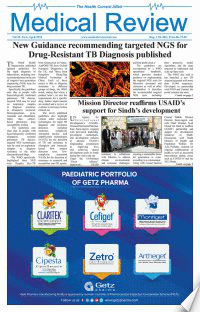Dow University of Health Sciences (DUHS) introduced Nucleic Acid Testing (NAT) technology for detecting and decreasing the risk of blood transmitted diseases like HIV, HBV, HCV, WNV, Parvovirus B19 and HAV.
Vice Chancellor, DUHS, Prof. Dr. Saeed Quraishy inaugurated of first Blood Bank in public sector to adopt Real time PCR based NAT technology. Senior faculty members including Pro-Vice Chancellor, DUHS, Prof. Dr. Muhammad Masroor, Prof. Dr. Shaheen Sharafat, Dr. Shaheen Kusar, Dr. Asif Qureshi, Country Manger Roshan Pakistan Dr. Qadeer Raza, Director Abdul Qayyum, Maqsood Ahmed Khan, Sabira and others present on this occasion.
Prof. Saeed Quraishy said this crucial and timely step taken by DUHS will definitely contribute a significant role in reducing the rate of transfusion transmitted diseases like Human Immunodeficiency Virus (HIV), Hepatitis B virus (HBV), Hepatitis C virus (HCV) and West Nile Virus (WNV) in Pakistan.
He said this technology is the world’s latest and the safest technology available which help minimize the window period and offers much higher sensitivity for detecting viral infections and safe blood transfusions for all. The traditional method for blood screening which is also known as immunoassay or more commonly as the serology test detects antibodies to viruses or viral antigens. Thus, if there are no antibodies present, as during the window period, these simple traditional tests may not highlight or trigger a positive test reaction.
Prof. Dr. Shaheen Sharafat informed that window period is the time duration when the donor is exposed to a virus until antibodies against the virus are produced and the risk of infection in donated blood can be missed. That is, if the blood is donated during the window period, when the virus and its anti-bodies are not detectable by either of the old traditional screening tests but the infectious agent may be present in the blood of the donor, this can infect 3 other patients and the disease can transmit and increase its range in this way. The Nucleic acid testing (NAT) is the most advanced tool which uses Real-time Polymerase Chain Reaction (PCR) technology to detect the presence of viral infections including the DNA and RNA viruses by simply screening the whole blood and plasma samples. This test is performed on donations of blood and other blood components that may contain HIV, HCV and other such blood transfusion transmitted diseases.


